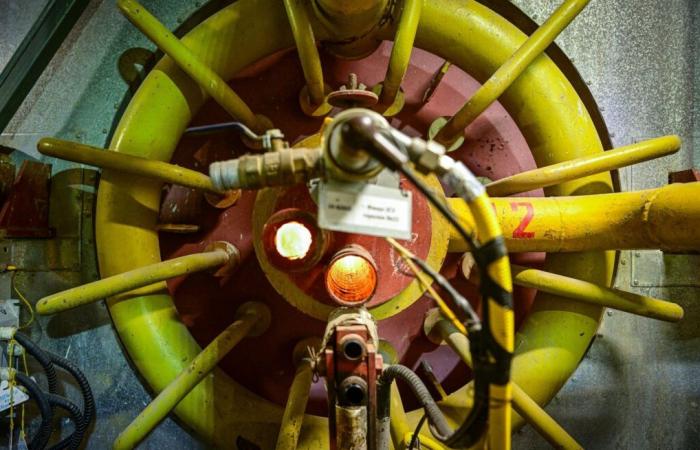Russian giant Gazprom announced on Saturday that it would stop delivering gas to Moldova on 1is January, after a financial dispute with this former Soviet republic having just re-elected a pro-European president.
“Gazprom will introduce a reduction to zero m3 per day of its natural gas deliveries to the Republic of Moldova, starting from 1is January 2025 at 5 a.m. GMT,” it said in a statement.
Its decision is “linked to the refusal of the Moldovan side to settle its debts”, stipulates the group, which “reserves the right” to decide on other actions, including that of terminating its gas contract with Moldova, a country among the poorest in Europe.
The Moldovan Prime Minister, Dorin Recean, denounced on Facebook a “tactic of oppression”, Russia using “energy as a political weapon” to leave residents “without light or heating in the middle of winter”.
But according to him, Moldova is “ready to cope” from other sources of supply.
The Moldovan Parliament had approved the establishment of a state of emergency for a period of 60 days, from December 16, in anticipation of this expected interruption of deliveries.
On Friday, the government announced drastic measures to reduce electricity consumption in the country from 1is January, in particular by limiting lighting and shifting industrial production times from peak hours of household consumption.
Achieving energy security is a priority for this former Soviet republic of 2.6 million inhabitants, a candidate for European membership.
Its commercial dispute with Gazprom predates the Russian invasion of Ukraine and concerns the Moldovagaz subsidiary, 50% owned by the Russian group.
After suddenly increasing its prices in 2021, the Russian giant demanded more than 700 million dollars from Chisinau, which has always refused to pay.
Moldova commissioned an audit from two Western firms which estimated its debt at 8.6 million dollars, almost ten times less.
Located between Romania and Ukraine, before the invasion it received Russian gas transiting through Ukraine.
After the start of the conflict, only the pro-Russian separatist region of Transdnistria continues to be supplied, but its thermal power station still provides 30% of the electricity consumed by the entire country.
Despite this tense context, the first pro-European Moldovan president Maia Sandu was inaugurated at the end of December for a second term, after an election clouded by accusations of interference from Moscow.
Gazprom’s decision comes as excitement spreads to part of Eastern Europe. Ukraine has in fact announced its intention not to renew the contract binding it to Russia until December 31 to transit its gas.
A turning point which will affect Slovakia and Hungary, these two countries remaining close to the Kremlin despite their membership in the EU and NATO, wishing to continue to buy Russian gas.
Slovakia threatened kyiv with reprisals on Friday.
To watch on video
Canada






